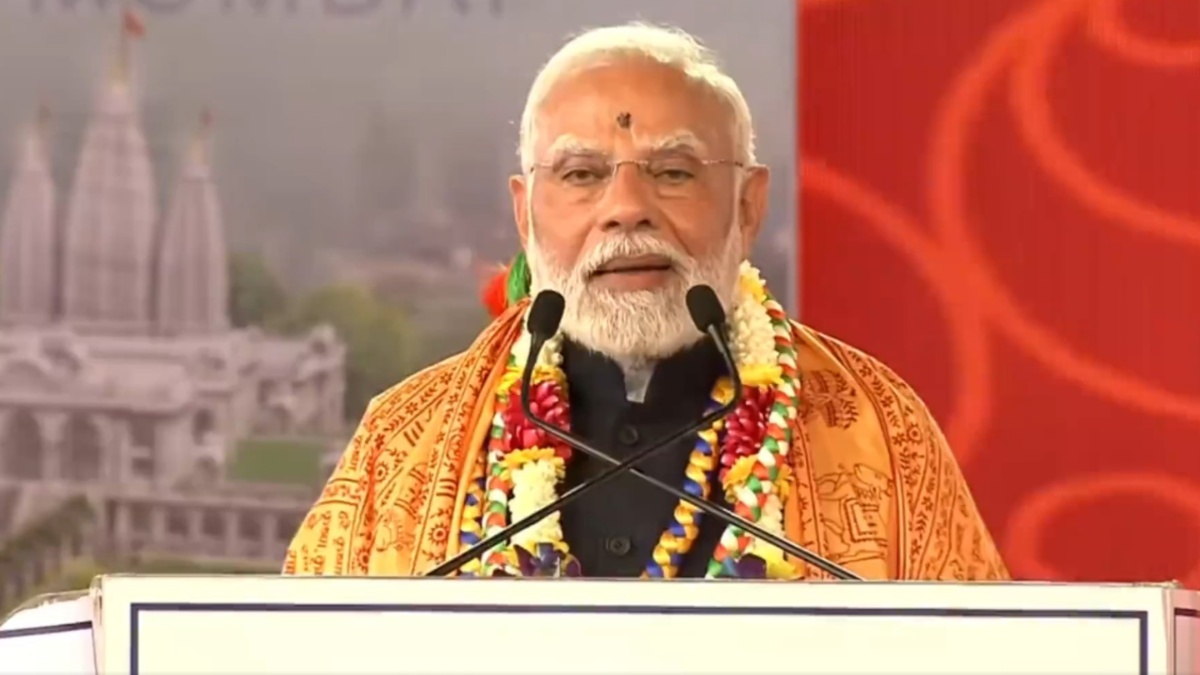 |
|
Prime Minister Narendra Modi's inauguration of the Sri Sri Radha Madanmohanji Temple in Navi Mumbai marks a significant event not only for the devotees of ISKCON but also for India's cultural and spiritual landscape. The temple, touted as Asia's second largest ISKCON temple, stands as a testament to the enduring power of faith and the harmonious blend of ancient traditions with modern architectural design. The Prime Minister's presence underscores the importance the government places on religious harmony and the role of such institutions in shaping national identity. His emphasis on the temple's architectural design, reflecting both spirituality and science, highlights a conscious attempt to appeal to a broader audience, including those interested in the historical and scientific aspects of temple construction and design. The inclusion of a museum showcasing the epics of Mahabharata and Ramayana, and a garden inspired by Vrindavan, further solidifies this intention to engage a wider demographic, particularly the younger generation, in India's rich cultural heritage.
The Prime Minister's speech went beyond the ceremonial inauguration, delving into the philosophical underpinnings of India's spiritual identity. His assertion that understanding India necessitates an appreciation of its spiritual essence is a powerful statement that challenges materialistic interpretations of the nation. He contrasted a materialistic view of India as merely a collection of diverse languages and regions with a deeper understanding of its unifying spiritual consciousness. This resonates deeply with the ongoing debate about India's identity in a globalized world, where the country's spiritual heritage often gets overshadowed by economic and political considerations. By emphasizing the unity within India's diversity, Modi highlighted the common thread of devotion that unites diverse traditions and languages under a shared spiritual consciousness.
The role of ISKCON in fostering this spiritual connection was also prominently highlighted. The Prime Minister's acknowledgement of ISKCON's global reach and its unifying principle of devotion to Lord Krishna demonstrates the organization's significant influence on shaping India's spiritual identity on the global stage. The emphasis on the teachings of Srila Prabhupada further underscores the continuity of ISKCON's philosophy and its lasting impact on devotees worldwide. The temple inauguration, therefore, is not just a local event but a significant moment in the larger narrative of India's spiritual and cultural outreach. The temple serves not only as a place of worship but as a symbol of India's enduring spiritual heritage, its rich cultural tapestry, and its ongoing efforts to connect with its global diaspora through shared values and traditions.
Furthermore, Modi's emphasis on selfless service as a core principle of India's spiritual culture is highly relevant in the current socio-political context. By linking selfless service to both humanity and the divine, he underscores the importance of social responsibility and charitable work. His praise for ISKCON's contributions to society, specifically mentioning its service initiatives during the Kumbh Mela, highlights the practical application of spiritual principles. This message resonates strongly with the growing interest in social activism and volunteer work in India, demonstrating how spiritual practices can translate into tangible contributions to the betterment of society. The temple, therefore, becomes not only a place of spiritual reflection but also a symbol of social engagement and community service.
In conclusion, the inauguration of the Sri Sri Radha Madanmohanji Temple is more than a mere construction project. It's a multifaceted event that showcases the confluence of religious faith, architectural marvel, and socio-political commentary. It's a symbol of India's rich spiritual heritage, a testament to the unifying power of devotion, and a call for selfless service to humanity. The temple stands as a beacon of cultural awareness, engaging with modern sensibilities while upholding timeless traditions, thereby securing its place as a significant landmark in India's evolving socio-cultural landscape.
Source: PM Modi inaugurates Asia's second largest ISKCON temple in Navi Mumbai
